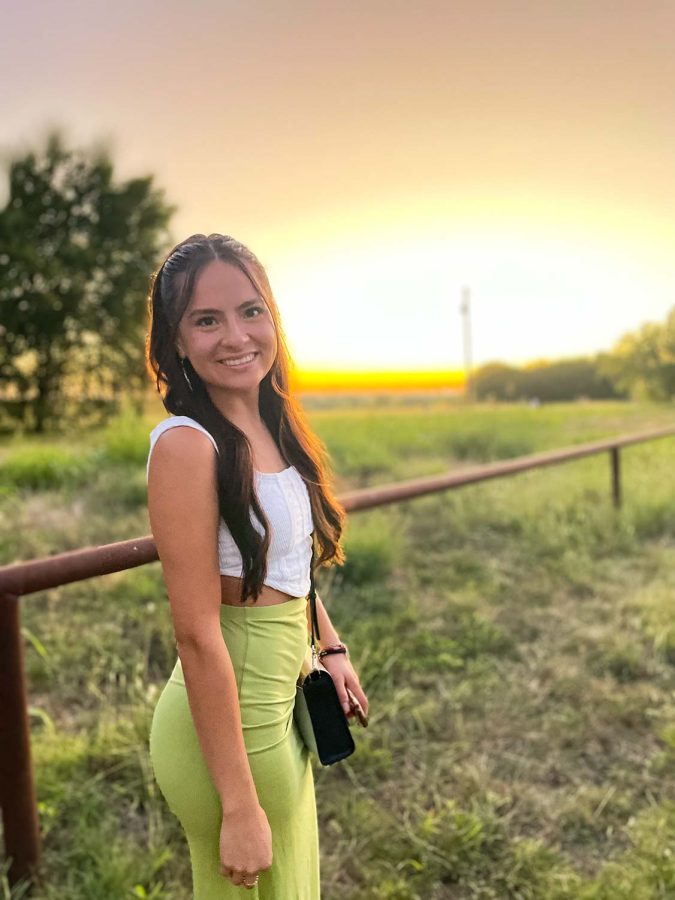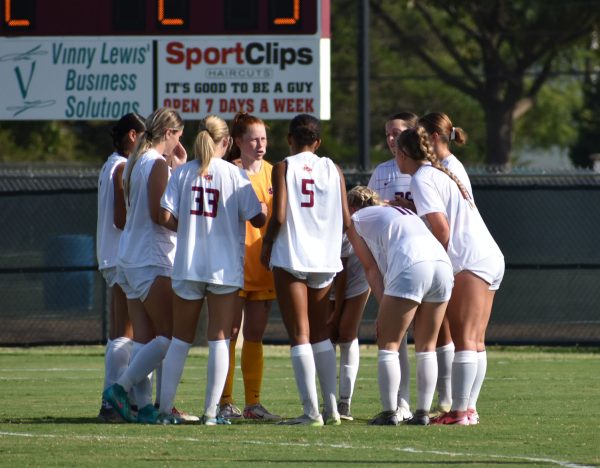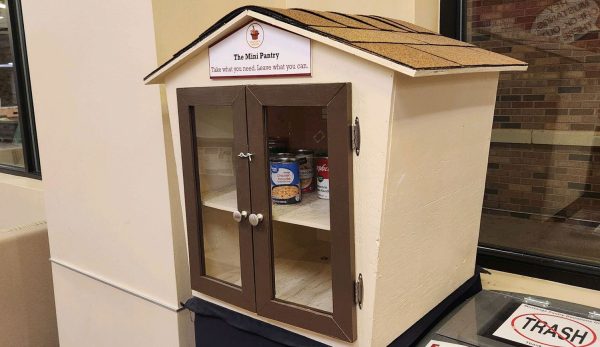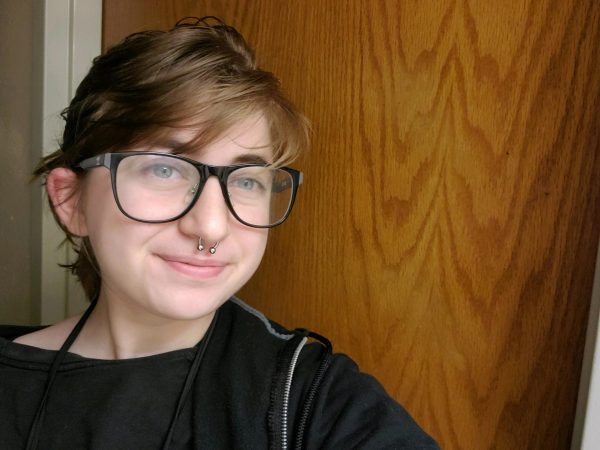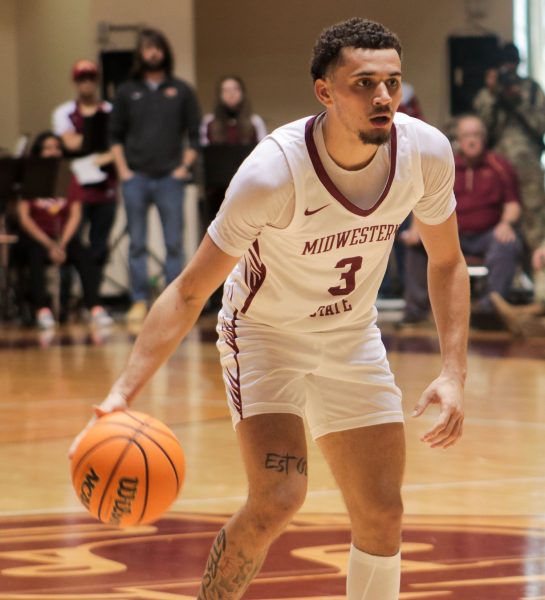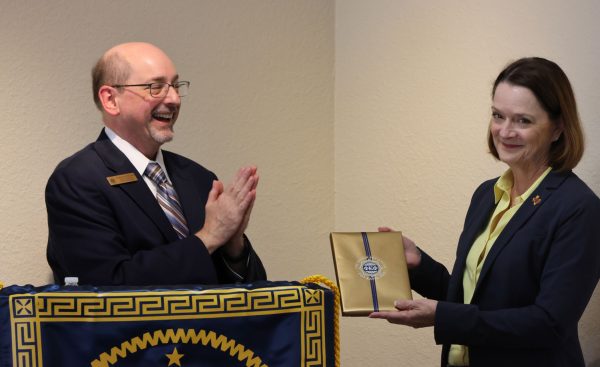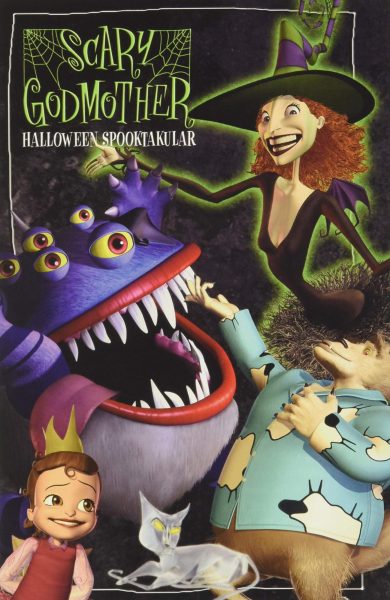Growing up Latino in Wichita Falls: Marlem Martinez
Spanish and criminal justice senior Marlem Martinez is a first generation student at MSU, 2022. Photo courtesy of Marlem Martinez.
After immigrating to the U.S. in order to keep a family together. Jose Martinez from Zacatecas, Mexico, then 18-years-old, along with his wife; Monica Martinez from Guanajuato, Mexico awaiting their first born, were wed in the church Our Lady of Guadalupe here in Wichita Falls, TX. That child would become a first-generation college student, studying Spanish and criminal justice in hopes to make an impact in the world around her. That child is Marlem Martinez.
“I grew up in the avenues in a dominantly Hispanic neighborhood, and with a lot of my family nearby. We had actually moved three times prior to growing up in the house in the avenues. When I was younger, I lived with my grandmother since my parents had me at such a young age. Carne asada’s were the usual weekends growing up with all my aunts and uncles and cousins. It was very influential and allowed me to grow up surrounded heavily in my culture. I am also the oldest child and a Hispanic woman, I grew up very involved in helping my family. In elementary, I would come home from school and make the beds, sweep, taking out the trash, washing dishes etc. Once my younger sister was old enough, then we would split all those chores. I’ve taken my brother to football games, sister to doctor appointments, help them both with homework, I’ve picked my brother up from school as well and if I don’t, in the Hispanic community, it can be seen as not wanting to help your family out, so that can be conflicting at times because it’s not like that,” Martinez said.
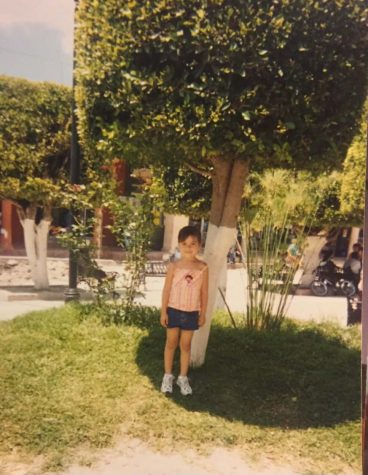
Martinez attended a pre-dominantly Hispanic elementary school. She remembers speaking to her grandmother only in Spanish growing up. Martinez says being placed in that environment made her feel safe being in her culture.
“Since the community I was raised in was mostly Hispanic, majority of the kids I went to school with were also my neighbors. On top of that, a lot of us also were raised in a Catholic household and attended Our Lady of Guadalupe. The church itself was a community. There were celebrations for Cinco de Mayo, Mexico’s independence day, we had an event called Jamaica that had all the booths, bailes, food, and it goes way back. That’s where my parents actually met, at that same event. A lot of us spoke Spanish; Spanish was actually my first language. I was even in English as a Second Language (ESL) when I was younger. I remember my pre-school teacher said I didn’t even know how to ask to go to the bathroom in English. I loved ESL, I didn’t even want to get out of it. I was taken out of ESL going into middle school and I remember because I wasn’t with my friends anymore and I know usually people want to get out of those classes, but I wanted to stay because that’s where all my friends were. It made me feel safe and comfortable in elementary growing up in that environment because I was with people who were all just like me,” Martinez said.
Martinez was faced with a culture shock after being removed from ESL when entering middle school. She was faced with wanting to fit in and be accepted by peers.
“Transitioning from exiting ESL and being fully integrated into school was hard on me. I wasn’t with my friends anymore and my middle school wasn’t as heavily Hispanic dominant, so I felt a cultural gap and didn’t feel as comfortable in myself. I am glad to say that I never really experienced racism for being Hispanic, but the fact that I haven’t is also a problem. I look white and I don’t have an accent either. I definitely feel the privilege I’ve received since I am lighter skinned whereas for instance my dad, who is darker and has a notable accent, people treat him differently. However, even though I’ve never directly experienced racism, I still in a way felt it. At one point I even wanted to be white. Sometimes even though people may not say things, you can still feel it and it can cause a lot of insecurities within yourself like it did with me,” Martinez said.
The struggles Martinez dealt with became part of the reason when coming into college, she knew she wanted to be involved in organizations that kept her surrounded in her culture and allowed her to have a safe place that she can always come back to.
“Being a first-generation Hispanic woman is complicated. It was honestly really shocking even being able to come here. Especially as, the oldest, I literally had nobody to help me with the process of applying, doing my FAFSA application and looking for scholarships. Of course, my parents were there for me but at the end of the day, I did it on my own. A lot of Hispanic students are first generation and regardless of my positive experiences, it’s not the same for a lot of Hispanics and I think the way I felt being in middle school, a lot may feel that way here and they need a space and a community, and so I feel like it’s so essential for me to be involved in organizations that are targeted to our people,” Martinez said.
In addition to being a Priddy scholar, Martinez has also served as the LatinX coordinator for MOSAIC, was involved in Cafe con Leche and is a member of OHS. Martinez says being a member of these organizations has allowed her to give back to the community and the people who shaped her.
“I love Mexico and I love being Mexican. I love our culture and traditions and language. My family comes from small ranchos. Going to Mexico is just so refreshing and the air there is just different. It also humbles me because it’s easy to take advantage of what we have. My family is proud of me for getting an education and graduating. I think my time here and being involved in so much made me able to give back to our community which is so important for me because I would describe myself growing up here as growing up in a Hispanic-integrated family and without my family and the community, I wouldn’t be who I am today and I am overall just blessed to have grown up the way I did, and create a space for others in this community,” Martinez said.
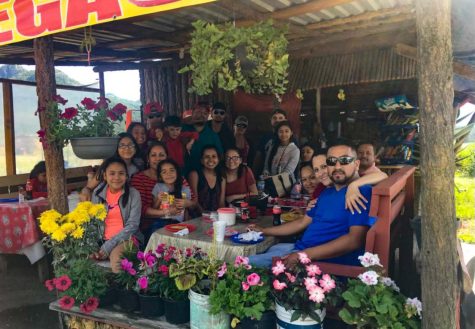

Hello! My name is Thalia Doe, and I am the Feature editor of The Wichitan. I am a Spanish and Mass Communication senior with a minor in broadcast journalism....



